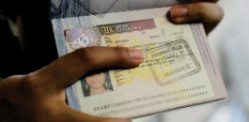"It's not something that I see any light at the end of the tunnel on."
It has been revealed that towards the end of 2023, Canada’s issuance of study permits to Indian students fell by as much as 86%.
This comes after India ejected Canadian diplomats in response to a diplomatic dispute over the murder of Khalistan supporter Hardeep Singh Nijjar.
Immigration Minister Marc Miller believes the number of study permits given to Indians is unlikely to rebound anytime soon.
He said: “Our relationship with India has really halved our ability to process a lot of applications from India.”
In October 2023, Canada was forced to pull 41 diplomats out of India.
Subsequently, Indian students are more inclined to seek other countries for their studies.
Those factors led to an 86% drop in study permits issued to Indians in the fourth quarter of 2023 from the previous quarter, from 108,940 to 14,910.
C Gurus Subramanian, counsellor for the High Commission of India in Ottawa, said some Indian international students were looking at other options besides Canada due to “concerns, in the recent past, regarding lack of residential and adequate teaching facilities” at some Canadian institutions.
In recent years, Indians have been the largest group of international students in Canada, with over 41% of all permits going to them in 2022.
Mr Miller said: “I can’t tell you about how the diplomatic relationship will evolve, particularly if police were to lay charges.
“It’s not something that I see any light at the end of the tunnel on.”
International students generate a lot of money for Canadian universities as they bring in around £12.9 billion annually and the slowdown will be a blow to the institutions.
In June 2023, Canada said there were “credible” allegations linking Indian agents to Nijjar’s murder, something India has denied.
The Canadian government has been actively working to decrease the influx of international students into the country, partly as a reaction to a persistent housing shortage.
Mr Miller said: “Right now we have a challenge with the sheer volume of students coming in.
“It’s just gotten out of control and needs to be reduced – I would say – significantly over a short period of time.”
Mr Miller said the government is set to implement additional measures aimed at reducing the influx of international students in the first half of this year, potentially including the imposition of a cap.
Canada is a favoured destination for international students due to the relatively simple process of obtaining work permits post-graduation.
Addressing the need for reform, the government plans to scrutinise the postgraduate work permit program, described as “very generous”, and to crack down on designated learning institutes, colloquially known as “fly-by-night” universities.
Already slated are restrictions on off-campus work hours for international students, a move raising concerns in the food service and retail sectors about potential labour shortages.
In 2023, the government estimated that around 900,000 international students would be studying in Canada, a threefold increase from a decade ago.
Notably, 40% of these students, approximately 360,000, were of Indian origin.
While the number of permits granted to Indian students declined by 4% in 2023, they still constituted the largest demographic group.






























































